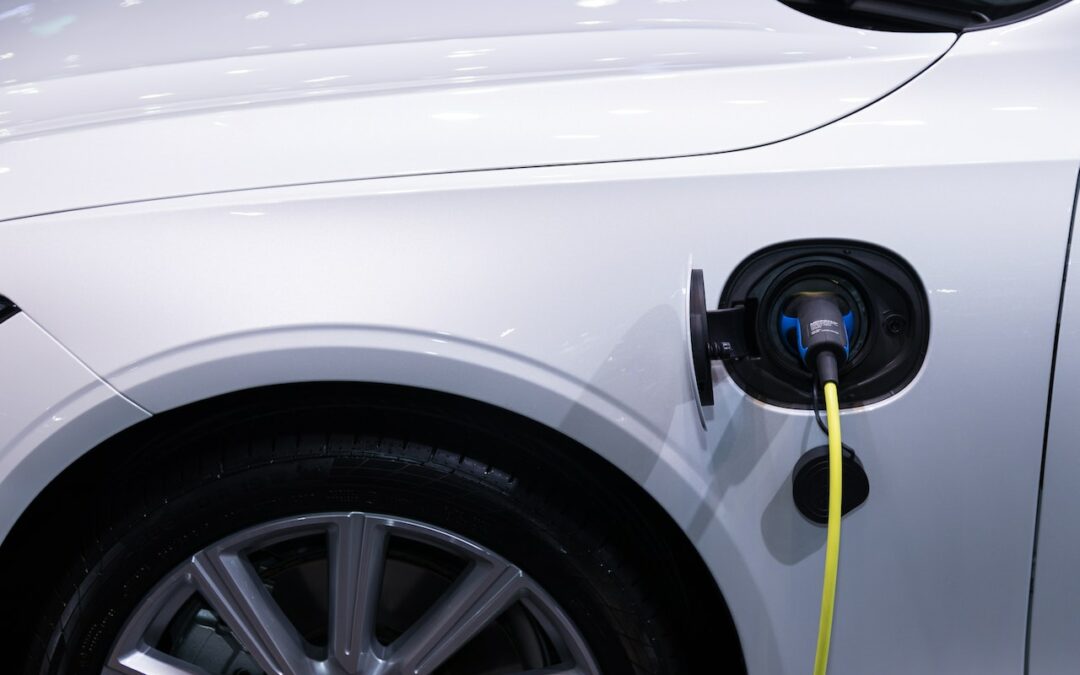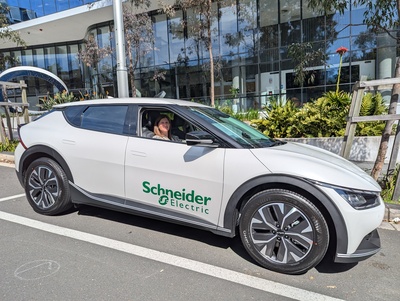
by Komoneed | Nov 2, 2024
The rate of plastic production has grown faster than any other material since the 1970s, making plastic waste an urgent global concern. Currently, about 400 million tonnes of plastic waste are produced every year.
Plastic waste flows into riverways and oceans, with an estimated 11 million tonnes of plastic on the ocean floor. CSIRO’s Indo-Pacific Plastics Innovation Network (IPPIN) was formed in order to respond proactively to this massive problem.
The Australian national science agency is in the process of gathering environmental entrepreneurs from across the Indo-Pacific region for a Demo Day to showcase innovative methods for tackling plastic waste. More than 20 international teams will take part in the IPPIN Accelerator+ Program, with these entrepreneurs set to converge at locations across Jakarta, Ho Chi Minh City and Bangkok to show how their solutions are transforming the way we produce, use and recycle plastic materials.
Kirsten Rose, CSIRO’s Deputy Chief Executive, emphasised the critical role of international partnerships in addressing global challenges like plastic waste and enhancing Australia’s innovation ecosystem.
“Plastic pollution is a global crisis that knows no borders and we cannot tackle it alone,” Rose said.
“Collaborating with our neighbours is crucial for advancing technology and business innovation, enabling us to weather economic uncertainty. By working together across borders, we can create a more resilient, healthier and prosperous region.
“Initiatives like IPPIN foster joint innovation, leading to sustainable and organic solutions to boost industry profitability.”
Those attending Demo Days can expect to see advanced waste management systems, creative methods for repurposing single-use plastics, and initiatives to empower marginalised communities most impacted by plastic pollution.
IPPIN Senior Program Manager Andrea Sosa Pintos said that CSIRO’s IPPIN program enables innovative solutions to accelerate rapidly and at scale.
“By 2040, global plastic use is estimated to double. Australia’s commitment to the High Ambition Coalition to End Plastic Pollution, as part of the negotiations for a UN treaty to end plastic pollution, firmly highlights our role as a regional leader in combating plastic pollution,” Sosa Pinto said.
“To date, IPPIN has engaged with over 3000 people in program activities and supported 130 global entrepreneurial teams to scale up sustainable and innovative technologies to find lasting solutions to address plastic waste.
“We have seen humble ideas grow into fully fledged, profitable innovations that revolutionise upstream and downstream plastic solutions. Continuing to support future innovators will be critical in tackling plastic waste regionally, together.”
Image ©Greenhope
One such success story is IPPIN alumnus Greenhope, a startup that has developed technology that utilises cassava starch to produce commercialised biodegradable bioplastic packaging.
Since its venture began, Greenhope has replaced 12 billion pieces of conventional plastic with biodegradable plastic and improved the welfare of 179 Indonesia cassava farmers.
CSIRO said IPPIN highlights the agency’s ongoing commitment to ending plastic waste and changing the way plastic is reduced, reused and recycled.
To find out more about the IPPIN teams, click here.
Top image caption: IPPIN 2023 alumnus The Ocean Cleanup deploys its ocean-cleaning technologies around the globe. Image ©The Ocean Cleanup.

by Komoneed | Oct 31, 2024
Human-driven climate change is causing temperatures to rise to dangerous new heights, while worsening drought and impeding food security, according to the ninth Lancet Countdown report. The report by health experts and doctors warned that people all over the world are facing unparalleled health threats because of the climate crisis. “This year’s stocktake of the […]
The post ‘The Climate Crisis Is a Health Crisis’: Escalating Climate Impacts Threaten Health Worldwide appeared first on EcoWatch.
by Komoneed | Oct 31, 2024
This post was originally published on WBCSDGovernment action is vital to unlock private sector investment at scale, say business leaders in global Business Breakthrough Barometer 91% of business leaders surveyed view the transition to net zero as an investment...

by Komoneed | Oct 31, 2024
Consumer editor Chris Rosamond thinks the UK’s charging network is still failing to provide for those who struggle to use it

by Komoneed | Oct 31, 2024
The climate crisis has been driving a steady energy transition towards renewables with companies increasingly focused on reducing emissions, more so now with the introduction of mandatory climate related financial disclosures. The requirements for our biggest companies will come into force in January 2025 and will progressively roll out to smaller organisations.
As businesses increasingly face pressure to demonstrate environmental responsibility, they are discovering the impact of fleet electrification in helping them meet emissions reduction targets.
This is an effective sustainability initiative, for large companies and our nation, with transport responsible for approximately 20% of all carbon dioxide emissions. Transition to electric vehicle (EV) fleets is essential for reducing Scope 2 emissions and achieving net zero greenhouse gas emissions targets.
The findings of Schneider Electric’s Sustainability Index, 2024, which surveyed over 500 key decision-makers across corporate Australia, found that 27% of respondents are investing more in EV fleets compared to three years ago.
Global EV sales continue to break records with strong consumer demand across all industries, including those with both light and heavy fleet vehicles. Vehicle emissions are one of the simplest ways to demonstrate progress on emissions reductions. Schneider Electric has joined a global initiative, EV100, and is committed to accelerating the transition to electric fleets.
Globally, Schneider Electric will transition its fleet of approximately 14,000 vehicles to EVs, with charging stations installed at offices and factories, by 2030. In Australia in 2025, Schneider Electric will have already transitioned over 100 vehicles to EVs, significantly lowering its Scope 2 emissions, and aims to beat the 2030 goal.
The transition to EVs in corporate fleets is a major step towards a sustainable future and is increasingly seen as a business opportunity. The global carbon footprint of transportation is significant, but fleet vehicles can lead the way to a healthier planet. The reduction in greenhouse gas emissions per vehicle is significant over an asset’s life and when multiplied across an entire fleet, one company making the switch to greener vehicles contributes to a meaningful cumulative impact.
With growing awareness of the benefit of EVs in reducing Scope 2 emissions, there is also a strong argument for a transition to an electric vehicle fleet from a financial perspective. The cost savings over the lifetime of an electric vehicle compared to a regular vehicle are significant. And government incentives and rebates can substantially reduce the upfront cost of purchasing electric fleet vehicles, making them more financially feasible — for businesses of all sizes.
In pursuing a fleet electrification strategy, a key challenge is concern around vehicle range performance and charging options. Addressing this is an important part of the transition plan. This demands a holistic approach: integrating technological advancements, financial incentives, infrastructure development, and educational initiatives is important for a successful outcome, including enthusiastic EV drivers.
With any change there is a natural and varied human response. Supporting employees to understand and appreciate the benefits of an EV fleet while helping them manage practical aspects, such as a new approach to charging, will help to smooth the transition.
Of help is also the market and government response to the increasing number of EVs on the road, with growing charging networks across workplaces and public commercial buildings, such as shopping centres, as well as kerb-side parking. Furthermore, advancements in fast-charging technology are reducing charging times and continuous improvement in battery technology is extending driving ranges, which is helping to make the corporate and public transition to EVs increasingly easier.
Commitment to sustainability is not limited to reporting requirements and driving an EV. In fact, 70% of the Sustainability Index survey respondents agree that sustainable transformation gives them a competitive edge.
Schneider Electric’s own ambitious goals to reduce emissions across its operations and assist its customers in doing the same saw it named by Time magazine and Statista as the world’s most sustainable company for 2024. This recognition highlights Schneider Electric’s dedication to leading by example and supporting others in their sustainability journeys.




